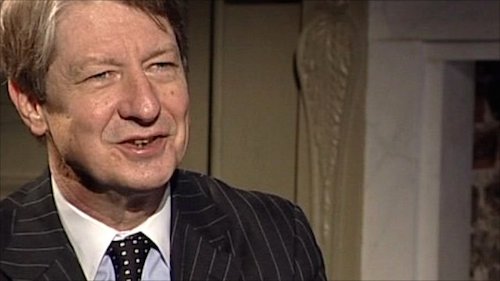The Cato Institute and PJ O’Rourke have filed an amicus brief in the Supreme Court case Susan B. Anthony List v. Driehaus, arguing that “truthiness” is an essential part of political discourse. Props to Jacek for the link. Susan B Anthony List is an anti-abortion group that purchased a billboard claiming Ohio congressman Steven Driehaus supported taxpayer-funded abortion because he voted for the Affordable Care Act, which does not provide taxpayer funding for abortions. The claim potentially ran afoul of Ohio’s False Statements Law, which prohibits making false statements about political candidates. There are several reasons why the case is likely to be decided on procedural grounds—not least that Driehaus lost and withdrew his complaint—but Cato and O’Rourke make an interesting point.
They also make it in a way that is not strictly hilarious. It’s hard to be funny in an amicus brief, which is both a reason and an excuse for the attention the authors have received. I’m going to refer to O’Rourke as the author of the brief from now on, since it bears the stamp of his late-career style:
Where would we be without the knowledge that Democrats are pinko-communist flag-burners who want to tax churches and use the money to fund abortions so they can use the fetal stem cells to create pot-smoking lesbian ATF agents who will steal all the guns and invite the UN to take over America? Voters have to decide whether we’d be better off electing Republicans, those hateful, assault-weapon-wielding maniacs who believe that George Washington and Jesus Christ incorporated the nation after a Gettysburg re-enactment and that the only thing wrong with the death penalty is that it isn’t administered quickly enough to secular-humanist professors of Chicano studies.
It’s like a distillation of everything he wrote in the 1980s, without the droll tone or the element of surprise. It’s easy to attack O’Rourke’s execution here, not just because he trades the rapier for the freight train but also because he’s doing it as a friend of an anti-abortion campaign’s attempt to mislead the public.
But it’s also easy to get in trouble when you say that someone else isn’t funny, as Lisa Needham demonstrates in her Wonkette piece, which accuses O’Rourke of hackery while including the word “lawsplaining” and a “blows goats” strikethrough joke. To quote a recent Missoulian commenter, that’s like the pot calling the kettle a pot.
So let us put aside the question of what happened to O’Rourke (his side won) and consider the larger question of what to do about lying in politics. It’s a pertinent issue, since it sure feels like our society is more mendacious than ever before. We have no way of knowing if that’s true—but presuming it is, what can we do about it?
As O’Rourke points out, we can’t just outlaw lying. If we make it illegal to publish false statements about political figures, what happens to The Onion? Criminal statutes leave little room for irony, which reveals the larger problem of legislating speech generally. Our daily discourse is far more nuanced than the language of the law.
Yet it seems undesirable to have groups spending millions to mislead the general public every election. Somebody ought to be able to do something. There are too many of us to know each candidate personally, so in a sense the voting public is at the mercy of the press and groups like SBA. I have to believe that the overall honesty of our public discourse has some impact on the voting public’s ability to do its job.
Here we encounter the problem with “truthiness” as O’Rourke and Cato construe it. When Stephen Colbert coined the term in 2005, he did not mean to praise it. Colbert is a satirist, and his embrace of “truthiness” was an indictment of prevailing dishonesty in politics. “Truthiness” is not the tool of satirists, who use irony to assert the truth. It’s the tool of groups like the SBA, who believe their position is so true that it’s all right to lie to get people to agree with them. Truthiness is the corruption of truth to admit dishonesty. Satire is the corruption of dishonesty to admit truth.
So yeah: we should all be more honest, but we can’t do it with laws because satirists are some of the only people still telling the truth. Irony is an essential part of political discourse. But I reject as a false equivalence the same claim about lying. There’s a difference between what Colbert does and truthiness, just as there is a difference between humor and tricking people. Also between what O’Rourke does and humor, but that’s another post.




